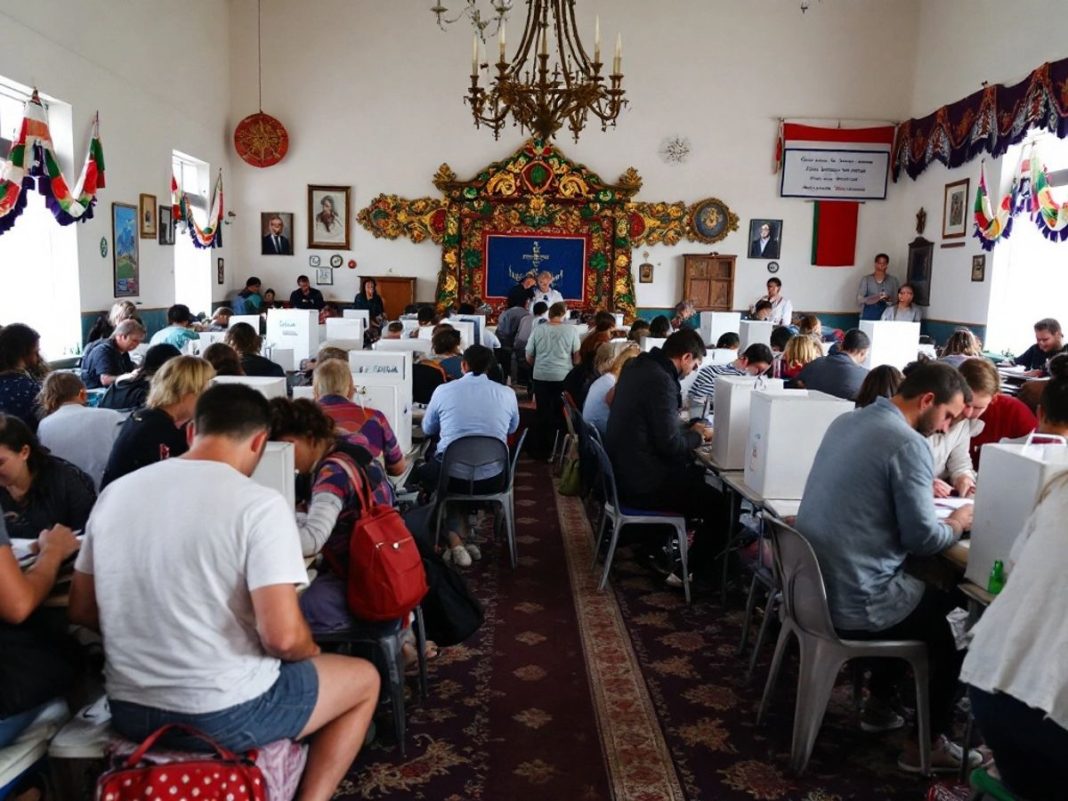Bulgaria is gearing up for its parliamentary elections on October 27, where citizens will choose their representatives for the 51st National Assembly. This election marks the country’s seventeenth national parliamentary election since the democratic changes of 1989 and the eleventh to occur before the legislature has completed its full term.
Key Takeaways
- Eligible Voters: 6,601,262 citizens can vote.
- Candidates: 4,855 candidates are competing for 240 seats.
- Polling Stations: 12,879 stations in Bulgaria and 719 abroad.
- Voting Methods: Options include paper ballots and voting machines.
Voter Eligibility and Registration
As of October 25, the Central Election Commission reports that 6,601,262 people are eligible to vote. Voter registration is passive, meaning individuals are automatically registered based on their permanent address in Bulgaria.
Candidates and Contestants
A total of 28 entities are participating in the elections, including:
- 19 Political Parties
- 9 Coalitions
- 1 Independent Candidate
In total, there are 4,855 candidates vying for 240 seats in the National Assembly, with a gender breakdown of 1,377 women and 3,478 men. Notably, 1,176 candidates are contesting in two constituencies.
Election System
The elections will utilize a semi-proportional system. Key points include:
- Threshold: Parties must secure at least 4% of valid votes to gain seats.
- Independent Candidates: Must meet the constituency electoral quota.
- Voting Preferences: Voters can express a preference for candidates on party lists, but this option is not available for voters abroad.
Polling Stations and Voting Process
Polling stations will open at 7:00 a.m. and close at 9:00 p.m. local time. Key details include:
- Domestic Polling Stations: 12,879, including 293 mobile stations and 209 in hospitals.
- Overseas Polling Stations: 719, with the highest numbers in Turkey (168), the UK (112), and Germany (66).
- Voting Methods: Voters can choose between paper ballots and voting machines, with machine voting available in 9,353 domestic stations and 157 overseas.
Security and Oversight
To ensure a smooth election process, over 15,000 police officers will be deployed across the country. Additionally, 77,764 commission members will oversee the voting process domestically, while 4,076 will be stationed internationally.
Conclusion
As Bulgaria prepares for this significant electoral event, the focus remains on ensuring a fair and transparent voting process. With a diverse array of candidates and a robust voting infrastructure, the October 27 elections are set to shape the future of the nation’s governance.
Sources
- BTA :: October 27 Elections in Bulgaria: the Rules and the Figures, БТА.
- Bulgaria Votes: 19 Parties, 9 Coalitions, and One Independent Candidate Compete in October 27 Parliamentary Elections – Novinite.com – Sofia News Agency, Novinite.com.
- Bulgaria Votes: 19 Parties, 9 Coalitions, and One Independent Candidate Compete in October 27 Parliamentary Elections – Novinite.com – Sofia News Agency, Novinite.com.
- Bulgarians in New Zealand are the first to vote for the new parliament – News, БНР.

